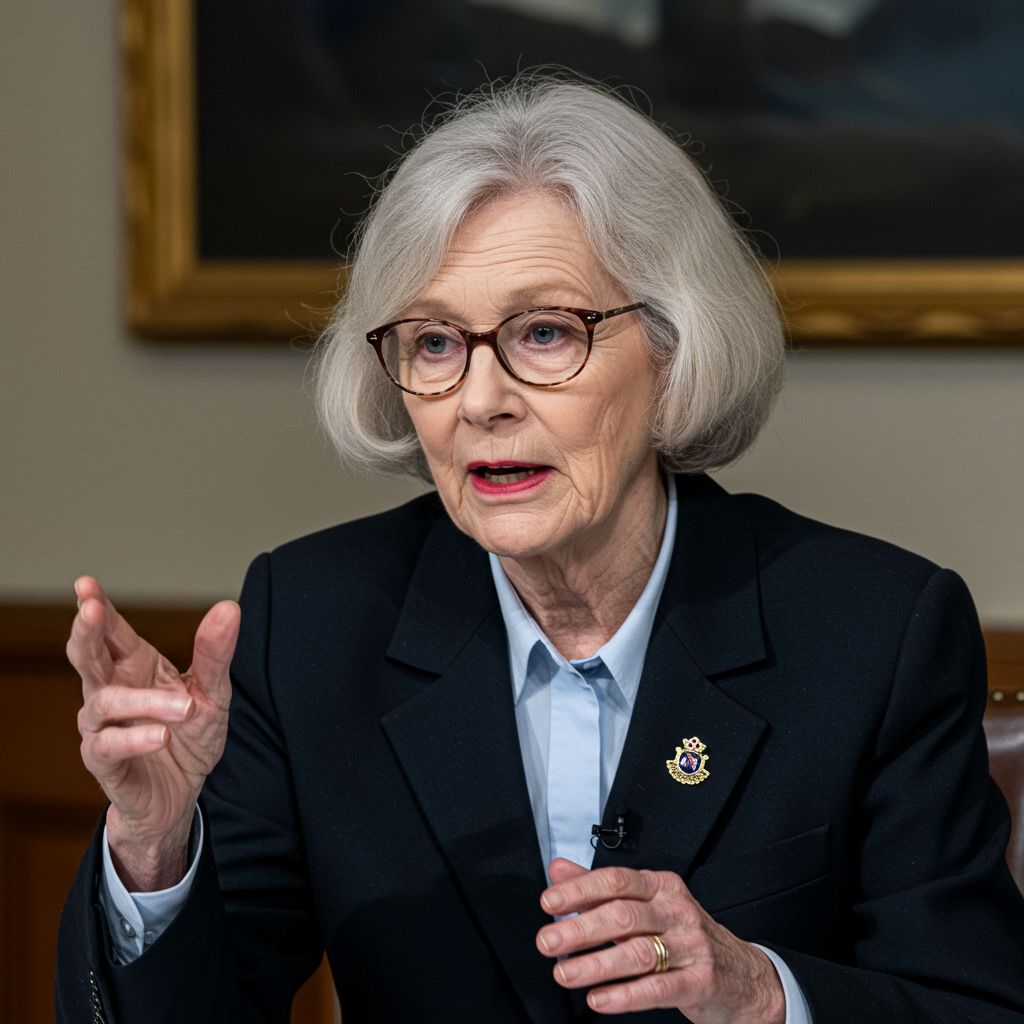Veteran broadcaster Dame Esther Rantzen, who is living with terminal cancer, has issued a powerful plea to the House of Lords. She is urging peers not to impede the passage of a bill that could grant terminally ill adults in England and Wales the legal right to an assisted death.
This appeal comes after the proposed legislation, known as the Terminally Ill Adults Bill, successfully cleared a vote in the House of Commons. MPs backed the bill by a margin of 314 votes to 291 on Friday, marking a significant step towards potentially changing UK law. However, for the bill to become law, it must now navigate the scrutiny and voting process in the unelected House of Lords.
Dame Esther’s Personal Appeal
Dame Esther, a prominent advocate for assisted dying reform who joined the Swiss clinic Dignitas after her terminal diagnosis in 2023, believes the Lords should respect the will of the elected chamber. Speaking to BBC Radio 4, she stated, “Their job is to scrutinise, to ask questions, but not to oppose” the decision made by MPs.
While acknowledging that peers who are fundamentally opposed to the bill have every right to their views, she stressed the constitutional duty of the Lords to facilitate law-making by the Commons. Dame Esther has previously indicated that the bill is unlikely to pass in time for her to benefit personally, highlighting the pressing nature of the debate for those currently suffering and for future generations facing similar circumstances. She expressed being “deeply relieved” by the Commons vote, finding comfort in the possibility that “if life becomes intolerable, unbearable, and they are terminally ill with six months or less to live, they will be able to ask for a pain-free, swift death.”
What the Proposed Assisted Dying Law Would Do
The Terminally Ill Adults Bill outlines specific criteria and safeguards for accessing assisted dying:
Eligibility: Mentally competent adults in England and Wales diagnosed with a terminal illness and a life expectancy of less than six months.
Patient-Led Request: The individual must make two separate, witnessed declarations clearly stating their “clear, settled and informed” wish to die.
Medical Assessment: Two independent doctors must assess the patient to confirm they meet the eligibility criteria and are not being coerced.
Waiting Period: There must be a minimum seven-day gap between the two medical assessments.
Panel Review: The application would be reviewed by a multi-disciplinary panel including a psychiatrist, a social worker, and a lawyer.
Reflection Period: Following panel approval, there would be a 14-day “period of reflection,” which could be shortened to 48 hours if the patient is likely to die within a month.
- Exclusions: The bill explicitly states that disability or mental disorder alone would not qualify someone for assisted dying.
- www.bbc.com
- www.bbc.com
- www.express.co.uk
- www.walesonline.co.uk
- www.bbc.co.uk
Supporters like Dame Esther argue this process is “rigorous” and provides sufficient protection for vulnerable individuals, ensuring only those with an irreversible, terminal condition who genuinely desire this option can access it.
Concerns and Opposition in the Lords
Despite clearing the Commons, the bill faces significant challenges in the House of Lords. Critics, including prominent disability rights campaigners, argue that the proposed safeguards do not go far enough and the law could put vulnerable people at risk of coercion.
Conservative peer Lord Shinkwin, a vocal opponent, contends the bill could lead to disabled and older people feeling pressured to end their lives. Drawing on his own experience of feeling “extremely vulnerable” during a recent intensive care stay, he expressed concern that if a doctor had raised assisted dying then, he “would have felt under real pressure to do that.” Lord Shinkwin argued that feeling like a “burden” is a common experience for disabled individuals, and the law could exacerbate this pressure. He also raised concerns that safeguards, even if initially strong, could be eroded over time, citing experiences in other jurisdictions.
Baroness Tanni Grey-Thompson, a former Paralympian who will also vote in the Lords, echoed concerns, stating she has heard from “disabled people [who] are absolutely terrified” of the bill. She believes the Lords’ role is to examine the bill “line by line” and that more safeguards could be added.
A group of 27 Labour MPs who voted against the bill in the Commons also expressed deep concerns about potential coercion risks, particularly affecting the elderly, and discrimination against vulnerable groups including disabled people and those from minority ethnic backgrounds. They insist the bill needs forensic scrutiny in the Lords, focusing on its practical application and perceived flaws.
The narrow margin of victory in the Commons (a majority of 23, smaller than previous votes) is interpreted by opponents like Lord Shinkwin as an indication that many MPs might welcome a further look at the legislation and its safeguards in the Lords.
The Path Forward
While the Commons vote represents significant momentum, the bill’s journey through the Lords is uncertain. Peers could vote against it or delay its progress, potentially causing it to run out of parliamentary time before the next general election. Labour MP Kim Leadbeater, who guided the bill through the Commons, hopes there will be “no funny games” in the Lords, citing the thorough scrutiny already undertaken.
If the Lords approve the bill, any amendments they make would need to be sent back to the Commons for further approval before the legislation could be enacted. Even upon final parliamentary passage, ministers would have up to four years to implement the necessary measures, meaning assisted dying might not become legally available until 2029.
The debate remains highly charged, pitting arguments for patient autonomy and relieving suffering against profound concerns about protecting the vulnerable and upholding the sanctity of life. As the bill moves to the House of Lords, the scrutiny intensifies on the proposed safeguards and the potential societal impact of this profound legal change.




